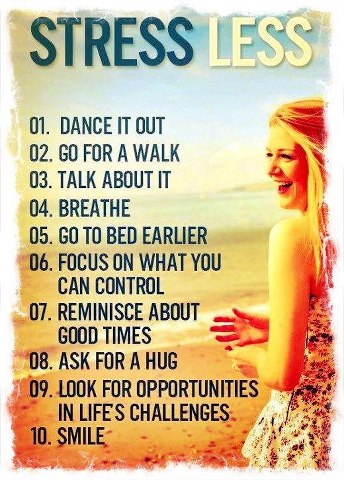TKV Desikachar was in Narbonne, in the South of France, for a symposium on “Yoga and the XXIst Century” during May 1999. The purpose of the symposium was to consider the role of yoga for the coming century in the three fields of Health, Psychology and Spirituality.
Question: How do you define spirituality from the point of view of yoga? Desikachar: What are we seeking ? Within every intelligent human being there are deep, searching questions – “Who am I? Where do I come from? Why do I sometimes feel so well, and not at other times? Where is the origin of my habits? What is it that will give me permanent happiness?”
Many people are looking for perfection in life situations – to have an ideal wife or an ideal husband and so on. Searching for happiness in external circumstances often leads to disappointment. We all know that wealth will not give us happiness, and we will not find it either in external freedom – doing what we want.
When we come to yoga, we begin to discover how the mind functions, and find that there is a lot of “junk” in it, which we try to remove.
Slowly the mind becomes more and more like a mirror that tells us : “Look here, there is something that I can show you”. This something was already there, but is now revealed to us. There is “something” in us which is beyond the mind – I do not know what we can call it.
When we begin to feel this, it is spirituality. The role of yoga in spirituality is to give us awareness of this feeling.
Question: Do you think that yoga can help a person in his or her religious practices? Desikachar: The moment there is a search, an enquiry, we need some help and start looking for it. Then what happens?
We all have roots – we did not appear spontaneously! We came from our parents, and they came from their parents. We are a part of a society, with a culture. We begin to look at our past, discover aspects we may have ignored, and some of these are religious. One discovery leads naturally to another…
I strongly believe that a serious aspirant of life, who goes into yoga, will find his or her roots, and these roots are often linked to religion.
Question: Some religious groups see yoga as being incompatible with their beliefs. Do you think this is simply a question of mis-information? Desikachar: Absolutely. We have to communicate more with them. This was lacking in the past, but things have improved. Many years ago, people thought that doing yoga would make a person crazy!
Earlier, it was also thought that yoga was anti-social, that it isolated people from society. It was perhaps considered potentially dangerous because it came from a different culture. Today, I don’t think this opinion is widespread.
All my friends live normally – they have children, a husband or wife and have responsibilities within the society. They work, have fun, watch football matches…
We, in the field of yoga, have a duty to explain better the true nature of what we are doing and how we live.
On the other side, unfortunately, some religious groups are very rigid. There is also some anxiety in certain religious circles – they feel they are losing their numbers and give mis-information to try to avoid this. Perhaps there is also some ignorance – but this method will not succeed.
There is also a little fanatism in certain religious groups. They provoke basic instincts, unfair to religion as a whole, so that their followers look at everything else negatively. Unfortunately, there can be an element of cult in religion.
So, on our side, we have not given the right information ; on their side, there can be some nervousness.
Question: It would seem that the relationship between the teacher and the student, in the traditional Indian context, is the important factor in change for the student – health-wise, psychologically or spiritually. In the western context, for the coming century, do you see this aspect as feasible or should we be looking to emphasize other aspects? Desikachar: It is not only going to be feasible, it is going to be more and more dominant. We are losing touch with relationship. We have no husband, no wife, no father, no mother, no religion… At the same time we cannot live alone.
A human being likes to be with others. I have heard that there are some “psychological clubs” in France where people meet and share over a cup of coffee, because they have nowhere else to meet and talk. We are becoming lonely, because we wanted a certain freedom, and this is the price we have paid.
Relationships are going to be very important. This means that a teacher has to be very careful, because the moment a student likes a teacher, there is a risk that the teacher will be considered as their husband or wife, or father, or guru, or whatever.
Without a doubt there will be an increasing demand for relationships. Depending on how we handle it this will be for good or for bad… Today, technology has created a big wall between human beings. No need to go to the bank to get money, nor to a travel agent to buy a ticket. Everything is done through technology. We are always focusing on machines.
I observe this when I walk in the streets of any big city in the west – people are not looking at each other, they are looking at machines or talking on their telephones. Even when I go to the counter, the lady is not looking at me, she is looking at the computer!
Technology is great, but it can separate human beings. Therefore, we will certainly be looking for relationships in the future.
Question: And where does yoga fit in? Desikachar: Yoga is relationship. The word yoga means to relate.
TKV Desikachar was in Narbonne, in the South of France, for a symposium on “Yoga and the XXIst Century” during May 1999. The purpose of the symposium was to consider the role of yoga for the coming century in the three fields of Health, Psychology and Spirituality.
With thanks to Paul Harvey – see also Relevance of Traditional Teaching, Yoga & Psycology
Download PDF of Interview with TKV Desikachar on Yoga in the fields of Health, Psychology and Spirituality.






